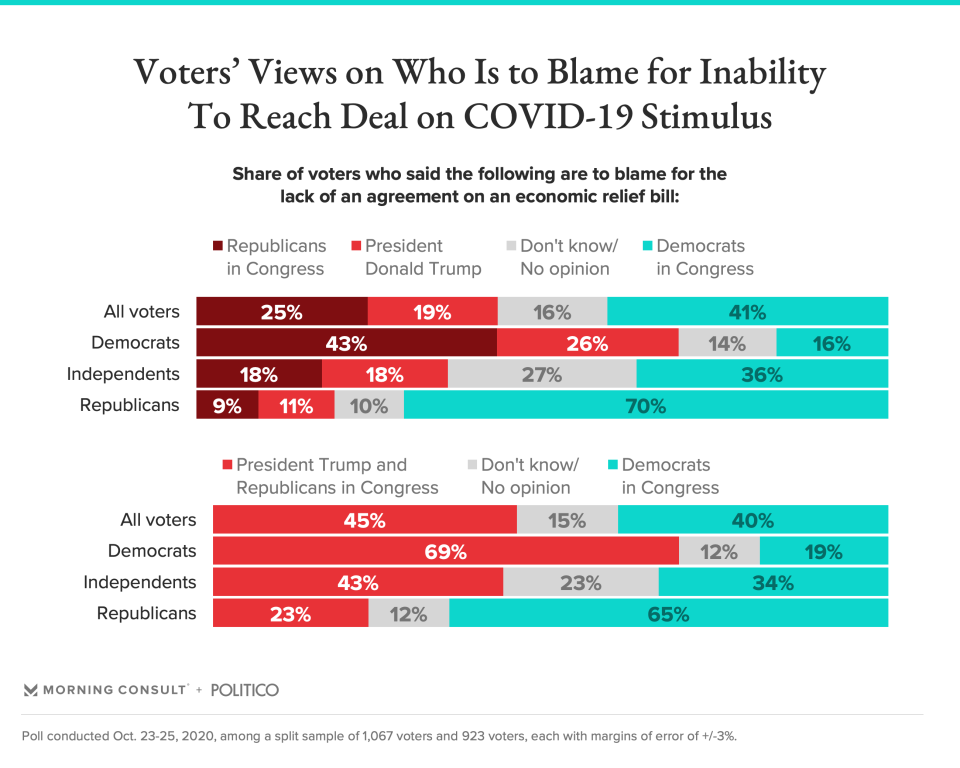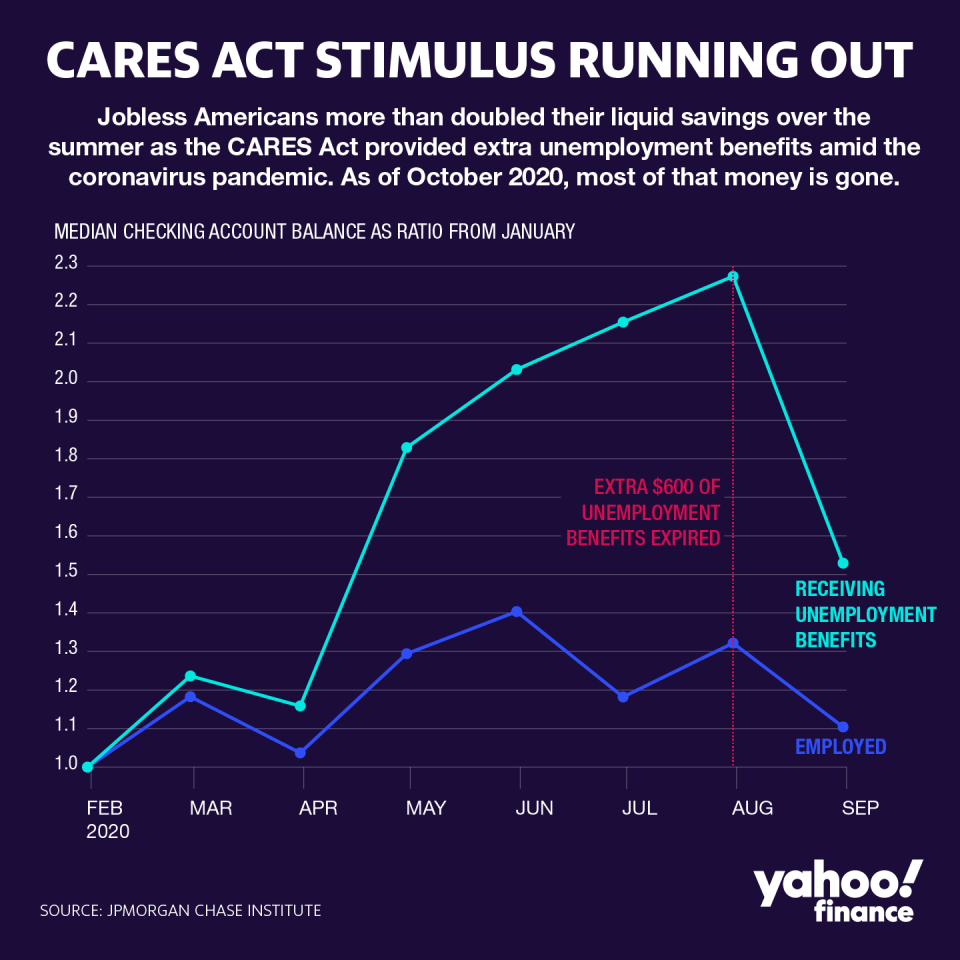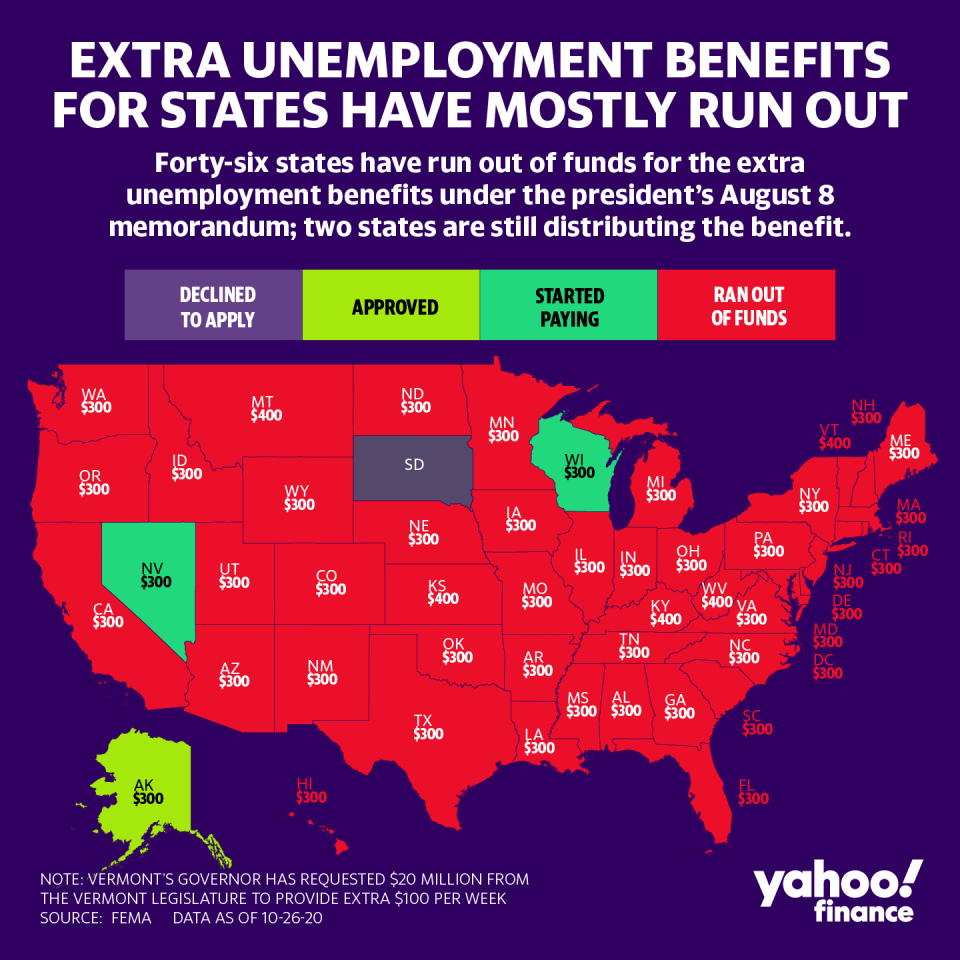Voters blame GOP and president slightly more for no coronavirus stimulus deal
Most voters want more stimulus relief regardless of their party affiliation, and now that a deal won’t happen before the election, slightly more blame Republicans and the president for the gridlock, according to two polls.
Forty-four percent of voters think it’s the president or the Republicans’ fault, while 41% think the Democrats are the reason for no deal, according to a new Morning Consult/Politico poll of 1,067 voters.
A September poll of 1,003 by North Star Opinion Research, also found that voters narrowly blamed Republicans more for the gridlock, with 26% blaming Republicans for the failure to get it done, and 23% blaming Democrats.
Read more: Here’s what you need to know about unemployment benefits eligibility
The Morning Consult/Politico poll largely fell on party lines.
“You are never going to find, given the tribal politics that we have, that Republicans are going to blame Republicans or Democrats blame Democrats,” said Norman Ornstein, a scholar at the American Enterprise Institute, told Yahoo Money. “But it may have an impact at the margins on some voters.”
Morning Consult also conducted a second poll of 923 voters, lumping Republicans in Congress and the president together. In that poll, voters blamed the GOP and Trump even more, and among independent voters, the contrast is starker: 43% say it’s the fault of Republicans and the president, while 34% lay the blame on Congressional Democrats.

Another stimulus deal is incredibly popular among most Americans.
Nine in ten voters support more relief for small businesses and protecting jobs, according to an October survey of nearly 2,000 by The American Hotel & Lodging Association. An October poll from Yahoo News of 1,525 registered voters found that nearly 4 in 5 wanted lawmakers to approve another major pandemic relief package.
“There are certainly people who have not been deeply affected in economic terms by what happened, but almost everybody has been affected in social terms,” Norman Ornstein, a scholar at the American Enterprise Institute, told Yahoo Money. “If there's anything that's surprising here, it’s that the numbers in support are as low.”

‘If there had been another round of stimulus checks’
The voters who may be swayed by no deal could be lower-income whites without college degrees. This demographic was the largest group of voters who voted for Obama in 2012 but switched to Trump in 2016, and they also are facing higher levels of housing insecurity and hardship during the pandemic, according to a new analysis by the Center for Economic and Policy Research.
“In 2016, Trump was able to run on social issues, and bring those to the forefront with his group,” Shawn Fremstad, a senior policy fellow at the Center for Economic Policy and Research, told Yahoo Money. “It seems like he could have a much harder time doing that [now].”

Instead this year, these voters may be more focused on their financial misfortunes as they head into the holiday season.
“If there had been another round of stimulus checks, just arriving this week or a real boost in unemployment two weeks ago, that would have made a big difference for a lot of people that probably would have rippled through,” Fremstad said.
‘Not getting that relief must be bringing economic concerns to the forefront’
Over 22 million jobless Americans are currently receiving some type of unemployment insurance. They have seen their benefits drop from around 130% of their pre-layoff wages to now 50% after the expiration of the extra $600 under the CARES Act and the extra $300 to $400 under the Lost Wages Assitance (LWA) program, an analysis from Evercore ISI found.
In August, the president did sign several executive actions including implementing the LWA program in an attempt to bypass stalled negotiations, but their impact was limited compared with what legislation passed by Congress could do.

President Trump also has been vocal about supporting a stimulus deal — including a second round of stimulus checks — even saying that he’d go above the Democrats’ $2.2 trillion proposal. But nothing so far has come of it.
“Not getting that relief must be bringing economic concerns to the forefront,” Fremstad said. “It's something that's in keeping those economic concerns really salient for the voters who may switch back to a Democrat because they think that's more likely to help them economically.”
Denitsa is a writer for Yahoo Finance and Cashay, a new personal finance website. Follow her on Twitter @denitsa_tsekova.
Read more:
Follow Yahoo Finance on Twitter, Facebook, Instagram, Flipboard, SmartNews, LinkedIn, YouTube, and Reddit.



